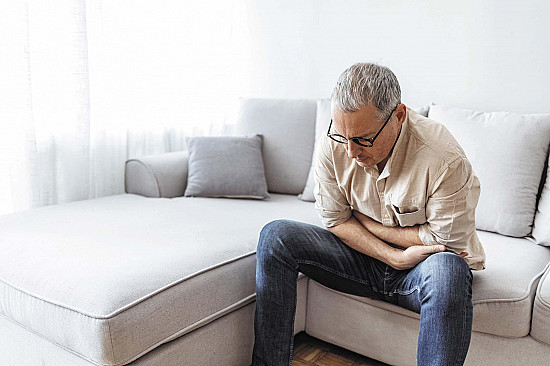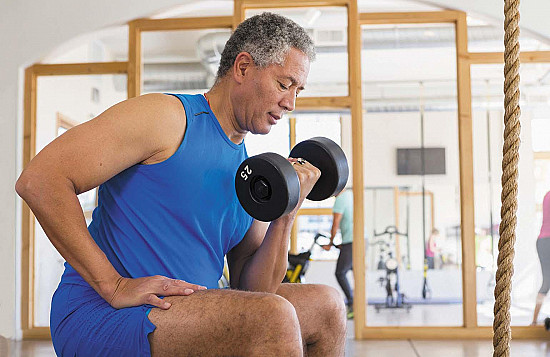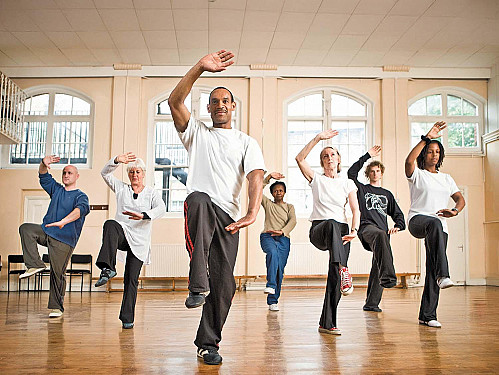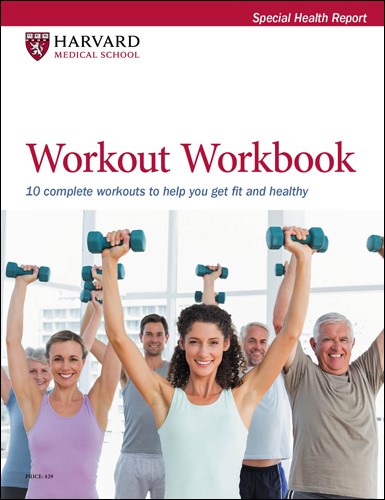The many ways exercise helps your heart
Physical activity triggers changes in your blood vessels, muscles, metabolism, and brain — all of which promote better heart health.
- Reviewed by Deepak L. Bhatt, M.D., M.P.H, Former Editor in Chief, Harvard Heart Letter
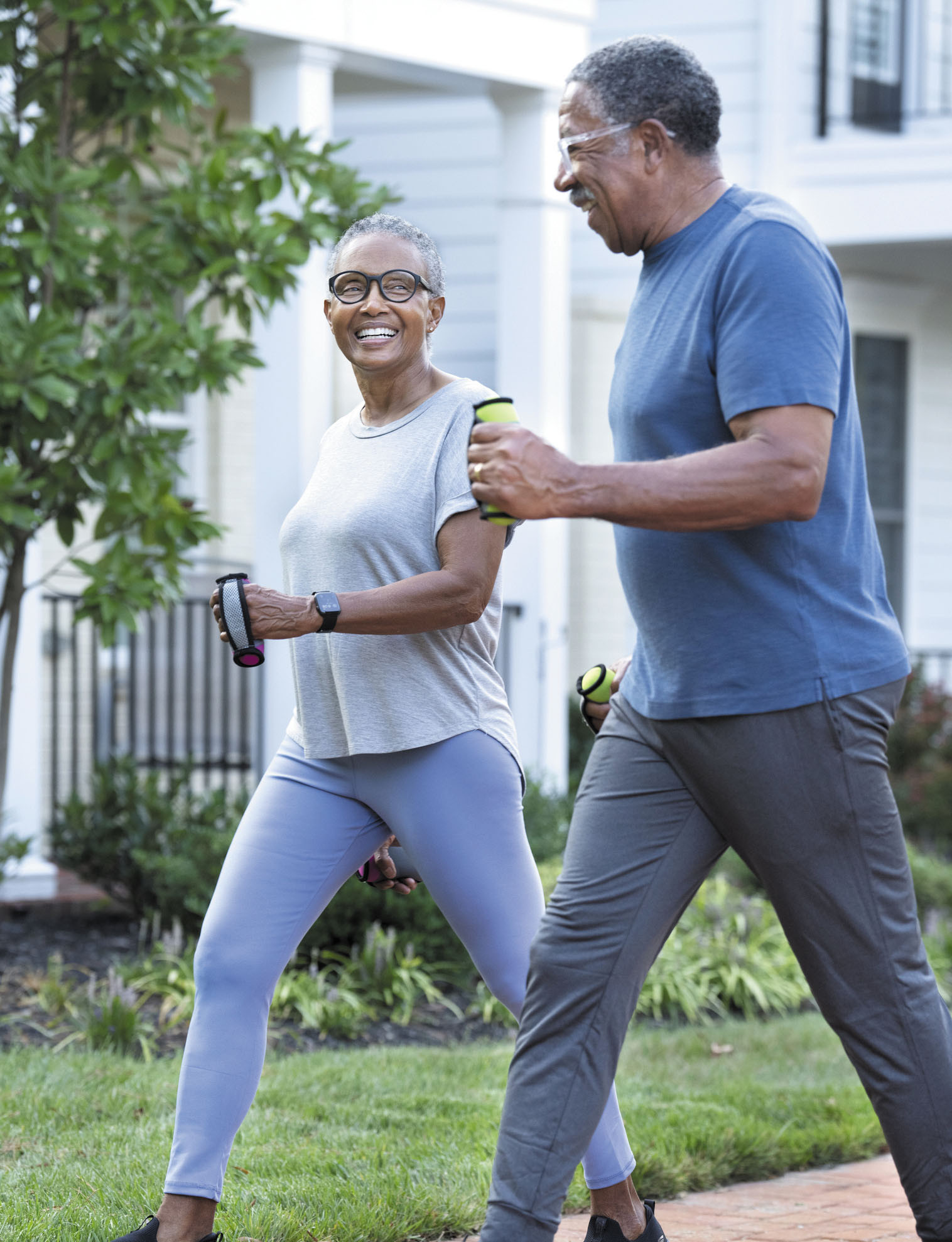 If you take a brisk walk, you'll notice certain changes in your body right away. Your heart beats a little faster, your breathing rate increases, and you may feel your leg muscles working. But you might not appreciate the myriad other physiological changes happening inside your body when you exercise — some of which offer benefits similar to those from common medications.
If you take a brisk walk, you'll notice certain changes in your body right away. Your heart beats a little faster, your breathing rate increases, and you may feel your leg muscles working. But you might not appreciate the myriad other physiological changes happening inside your body when you exercise — some of which offer benefits similar to those from common medications.
Together, exercise-induced changes can prevent or improve all the major risk factors that contribute to heart disease, including high blood pressure, diabetes, obesity, and unhealthy cholesterol levels. "Exercise can also improve mental health problems like depression and stress, which are common but often ignored contributors to cardiovascular problems," says cardiologist Dr. Aaron Baggish, a professor at the University of Lausanne in Switzerland and founder of the Cardiovascular Performance Program at Harvard-affiliated Massachusetts General Hospital.
Being physically active also helps people live longer, mainly because regular exercise helps prevent early death from heart disease, as noted in an article published Sept. 13, 2022, in the Journal of the American College of Cardiology that details the cardioprotective effects of exercise. Here's a closer look at how exercise affects the body and brain and how these adaptations protect your heart. For examples of aerobic exercise and muscle-strengthening exercises, see "Exercise recommendations and examples."
Exercise recommendations and examplesEvery week, strive for at least 150 minutes of moderate-intensity activity or at least 75 minutes of vigorous-intensity activity (or an equal combination of the two). Include muscle-strengthening activities at least two days per week. While the exercise guidelines don't include a suggested time or amount to do at any one time, experts says even a 10- to 15-minute session can be effective. |
|
|
Moderate-intensity exercise |
Vigorous-intensity exercise |
|
Walking, level surface, 2.5–4.5 mph |
Walking, level surface, 4.5 mph or faster, or walking briskly uphill |
|
Hiking |
Jogging or running |
|
Bicycling, level terrain, 5–10 mph |
Bicycling, 10 mph or faster, or up hills |
|
Stationary bike (indoor), moderate pace |
Spinning class (indoor cycling) |
|
Tennis, doubles |
Tennis, singles |
|
Swimming, recreational |
Swimming, steady laps |
|
Muscle-building exercise (also called strength, weight, or resistance training) |
|
|
|
A stronger heart
Over time, exercise increases the size of the heart's chambers and also conditions the heart. As a result, the heart relaxes more easily and pumps more efficiently because it requires less effort to send blood throughout the body.
Better blood vessels
High blood pressure results from stiff, inflexible arteries. Exercise boosts the amount of blood circulating through your body by up to 25%, which, over time, encourages blood vessels to expand slightly and become more flexible. Exercise also spurs the production of nitric oxide, a molecule that relaxes and widens blood vessels.
Both aerobic and muscle-building exercises can lower blood pressure slightly in people with normal blood pressure. If you have high blood pressure (defined as 130/80 mm Hg or higher), the average reductions are greater — between 5 and 7 points in systolic pressure (the first number in the reading). "That's similar to the reduction people experience from taking a blood pressure drug," says Dr. Baggish.
Muscles: The sweet spot?
During a workout, muscles churn out a protein called GLUT-4, which improves the body's ability to process glucose (sugar) for energy, in part by making cells more sensitive to insulin, the hormone that enables cells to absorb glucose. That's why exercise helps prevent and treat type 2 diabetes. "If everyone exercised enough, there would be almost no type 2 diabetes, which is largely a function of a sedentary lifestyle typical in Western countries," says Dr. Baggish. Type 2 diabetes — which is closely linked to excess weight — doesn't exist in primitive societies, where physical activity is a way of life, he adds.
Either type of exercise can lower your HbA1c by 0.7 percentage points, which is similar to the reduction from some diabetes drugs. (HbA1c is an average measure of your blood sugar over the past three months; a normal level is less than 5.7%, and levels of 6.5% or higher signal diabetes.)
Metabolism makeover
Although exercise is widely touted for helping people burn calories and shed pounds, the amount of weight loss from exercise usually isn't dramatic unless routine exercise is coupled with a healthy, balanced, calorie-restricted diet. However, exercise does help reduce visceral fat — the type that accumulates around the liver and other organs and is strongly linked to a higher risk of heart disease. Exercise has also been shown to modestly lower triglycerides (the most common type of fat in the bloodstream) and harmful LDL cholesterol.
Brain benefits
Regular exercise is believed to help dampen the body's "fight or flight" response, which plays a role in chronic stress and anxiety. Exercise may also release naturally occurring cannabis- like chemicals that may boost your sense of well-being. In addition, Dr. Baggish and colleagues recently showed that a single, 30-minute bout of moderate exercise releases a number of proteins into the bloodstream, including brain-derived neurotrophic factor (BDNF). BDNF has direct effects on brain function, especially with respect to mood and thinking ability. All of these effects may explain why regular aerobic exercise is as effective as any antidepressant medication, he says.
And while the heart may reap the bulk of exercise's many benefits, it may be the effect on your brain that inspires you to start moving more. "You can't feel your nitric oxide level rise or your blood pressure drop. But you can feel the emotional benefits of exercise right away," says Dr. Baggish.
Image: © Ariel Skelley/Getty Images
About the Author

Julie Corliss, Executive Editor, Harvard Heart Letter
About the Reviewer

Deepak L. Bhatt, M.D., M.P.H, Former Editor in Chief, Harvard Heart Letter
Disclaimer:
As a service to our readers, Harvard Health Publishing provides access to our library of archived content. Please note the date of last review or update on all articles.
No content on this site, regardless of date, should ever be used as a substitute for direct medical advice from your doctor or other qualified clinician.











